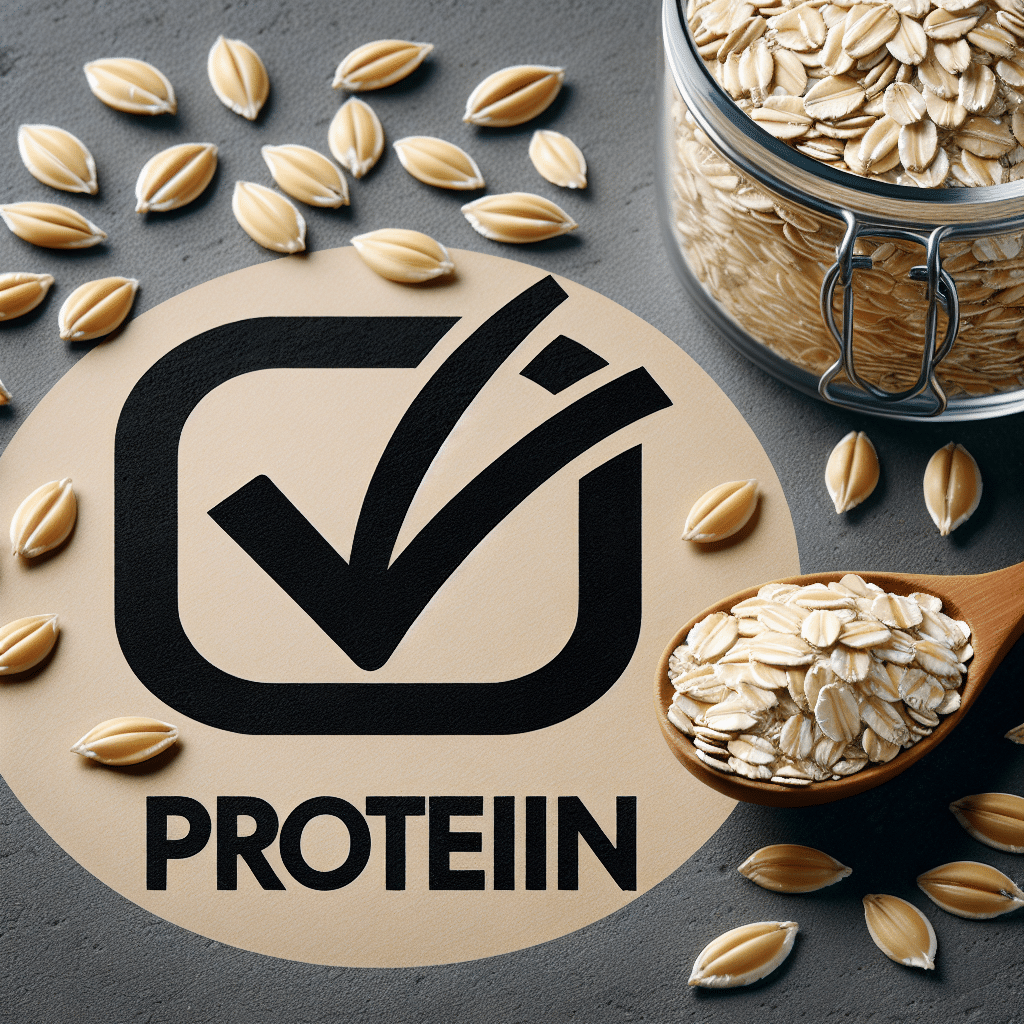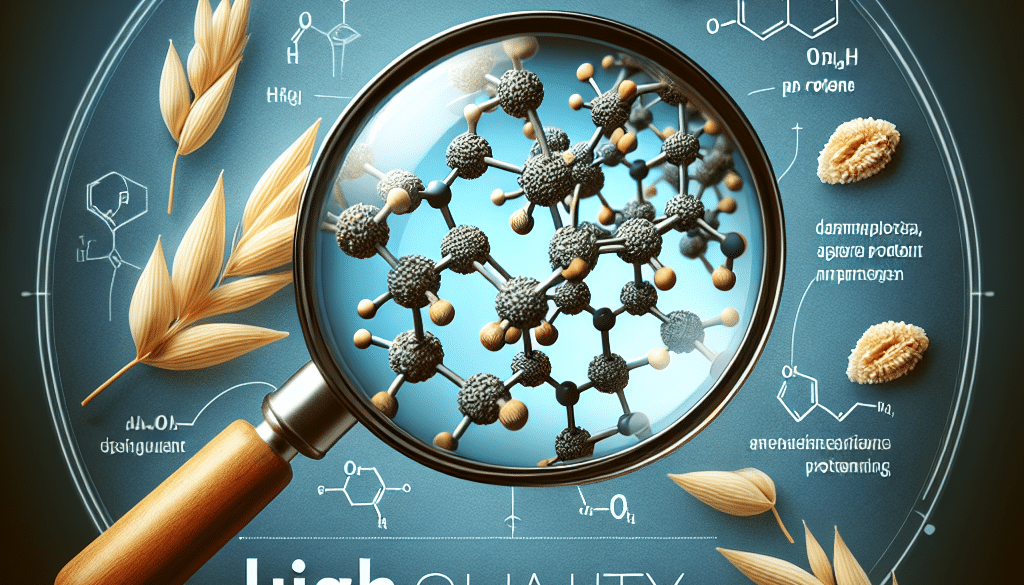Is Oat Protein High Quality?
-
Table of Contents
- Oat Protein: Assessing Its Quality in the Plant-Based Protein Arena
- Understanding Protein Quality
- The Nutritional Profile of Oat Protein
- Comparing Oat Protein to Other Plant Proteins
- Digestibility and Bioavailability of Oat Protein
- Health Benefits of Oat Protein
- Case Studies and Research on Oat Protein
- Conclusion: Is Oat Protein High Quality?
- Discover ETprotein’s High-Quality Protein Products
Oat Protein: Assessing Its Quality in the Plant-Based Protein Arena

As the world increasingly leans towards plant-based diets, the quest for high-quality protein sources is more pertinent than ever. Oat protein, a relatively new contender in the protein supplement market, has been gaining attention. But is oat protein a high-quality protein? This article delves into the nutritional science behind oat protein to determine its efficacy and potential benefits.
Understanding Protein Quality
Before we can assess oat protein’s quality, it’s essential to understand what constitutes a high-quality protein. Protein quality is determined by two main factors:
- Amino Acid Profile: Proteins are made up of amino acids, the building blocks of our body’s tissues. A high-quality protein contains all nine essential amino acids in sufficient quantities.
- Digestibility: This refers to how well the body can absorb and utilize the amino acids from a protein source.
Animal proteins like meat, dairy, and eggs are considered complete proteins as they contain all essential amino acids. However, many plant-based proteins are incomplete, lacking one or more essential amino acids.
The Nutritional Profile of Oat Protein
Oats are known for their health benefits, including high fiber content and heart-healthy properties. But when it comes to protein, how do oats stack up?
- Oat protein is a plant-based protein found in the endosperm and germ of the oat kernel.
- It contains a relatively high amount of protein compared to other grains, with approximately 12-17% protein by weight in whole oat kernels.
- Oat protein has a decent amino acid profile, though it is not considered a complete protein as it is low in certain essential amino acids, such as lysine.
Despite not being a complete protein, oat protein still offers valuable nutritional benefits and can contribute to a balanced diet, especially when combined with other protein sources.
Comparing Oat Protein to Other Plant Proteins
When compared to other popular plant proteins like soy, pea, and rice, oat protein holds its own in several ways:
- Soy protein is a complete protein and has been the gold standard for plant-based proteins. However, some individuals avoid soy due to allergies or concerns over phytoestrogens.
- Pea protein is rich in lysine but lacks methionine, another essential amino acid. Oat protein can complement pea protein by providing methionine.
- Rice protein is also incomplete and low in lysine, similar to oat protein. However, combining rice and oat protein can create a more balanced amino acid profile.
Therefore, oat protein can be an important part of a plant-based protein blend, offering a more comprehensive amino acid profile when paired with other proteins.
Digestibility and Bioavailability of Oat Protein
Protein digestibility is crucial for the body to access amino acids. Oat protein is generally well-digested, with studies suggesting that its bioavailability is comparable to that of other plant proteins. However, factors such as processing methods and individual digestive health can affect protein absorption.
Health Benefits of Oat Protein
Oat protein isn’t just about its amino acid profile; it also comes with a host of other health benefits:
- Heart Health: Oats are known for their beta-glucan content, a type of soluble fiber that can help lower cholesterol levels.
- Weight Management: The fiber in oats can promote satiety, helping with weight management.
- Blood Sugar Control: Oats have a low glycemic index, which can help regulate blood sugar levels.
These additional health benefits make oat protein an attractive option for those looking to improve their overall health, not just increase their protein intake.
Case Studies and Research on Oat Protein
Research on oat protein is still emerging, but several studies have highlighted its potential. For example, a study published in the “Journal of Nutrition and Metabolism” found that oat protein supplementation could enhance muscle recovery post-exercise. Another study in the “British Journal of Nutrition” suggested that oat protein could be as effective as soy protein in lowering cholesterol levels when consumed as part of a balanced diet.
Conclusion: Is Oat Protein High Quality?
Oat protein may not be a complete protein, but its high digestibility, beneficial amino acid profile, and additional health benefits make it a valuable addition to a plant-based diet. When combined with other protein sources, oat protein can help create a balanced and nutritious protein intake. As research continues to evolve, oat protein is likely to become a staple in the plant-based nutrition landscape.
Discover ETprotein’s High-Quality Protein Products
If you’re looking for high-quality plant-based proteins, ETprotein offers a range of products that can meet your needs. Their organic oat protein is just one of the many options available, providing a sustainable and health-conscious choice for consumers. With ETprotein’s commitment to non-GMO, allergen-free ingredients, and high purity standards, you can trust that you’re getting the best plant-based proteins on the market.
About ETprotein:
ETprotein, a reputable protein and L-(+)-Ergothioneine (EGT) Chinese factory manufacturer and supplier, is renowned for producing, stocking, exporting, and delivering the highest quality organic bulk vegan proteins and L-(+)-Ergothioneine. They include Organic rice protein, clear rice protein, pea protein, clear pea protein, watermelon seed protein, pumpkin seed protein, sunflower seed protein, mung bean protein, peanut protein, and L-(+)-Ergothioneine EGT Pharmaceutical grade, L-(+)-Ergothioneine EGT food grade, L-(+)-Ergothioneine EGT cosmetic grade, L-(+)-Ergothioneine EGT reference grade and L-(+)-Ergothioneine EGT standard. Their offerings, characterized by a neutral taste, non-GMO, allergen-free attributes, with L-(+)-Ergothioneine purity over 98%, 99%, cater to a diverse range of industries. They serve nutraceutical, pharmaceutical, cosmeceutical, veterinary, as well as food and beverage finished product distributors, traders, and manufacturers across Europe, USA, Canada, Australia, Thailand, Japan, Korea, Brazil, and Chile, among others.
ETprotein specialization includes exporting and delivering tailor-made protein powder and finished nutritional supplements. Their extensive product range covers sectors like Food and Beverage, Sports Nutrition, Weight Management, Dietary Supplements, Health and Wellness Products, and Infant Formula, ensuring comprehensive solutions to meet all your protein needs.
As a trusted company by leading global food and beverage brands and Fortune 500 companies, ETprotein reinforces China’s reputation in the global arena. For more information or to sample their products, please contact them and email sales(at)ETprotein.com today.














